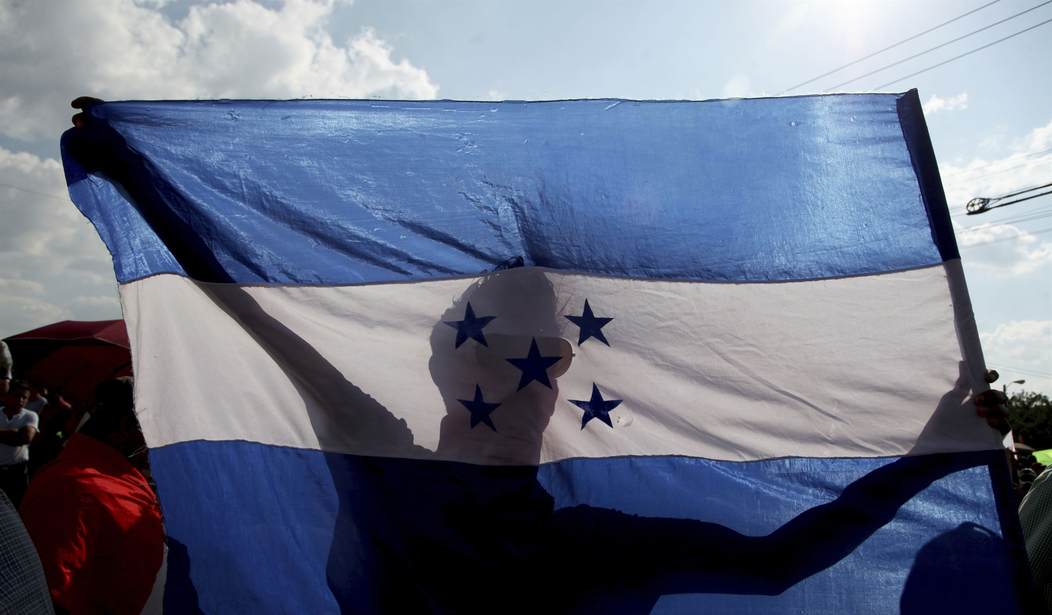Foreign policy through commerce, not gun boats and armed forces, is a key to stability in the Western Hemisphere. Although often upstaged by events in Eastern Europe, the Middle East, or Asia, the importance of stability in our own hemisphere has been long understood as of prime national foreign policy interest. That’s why in 1823, President James Monroe invoked what is now known as the “Monroe Doctrine” to force European powers to respect the United States sphere of interest in the Western Hemisphere.
In the spirit of reorienting U.S. foreign policy to our own backyard, Sen. Bill Cassidy (R-LA) and Rep. Maria Elvira Salazar (R-FL) have proposed a positive idea called the “Americas Trade and Investment Act” to promote investment in the hemisphere, create good jobs, and reduce poverty. On another legislative front, Reps. Paul Gosar (R-AZ), Rick Crawford (R-AR), and Eli Crane (R-AR) are sponsoring a bill titled the “Protect U.S. Investments Act of 2023,” which will sanction foreign public officials who assist in expropriating American assets or who refuse to engage with U.S. investors to resolve disputes. The Gosar bill would add some teeth to the longstanding 1962 Hickenlooper Amendment which cuts off aid to nations that expropriate U.S. investments.
The “Americas Act” and the “Protect U.S. Investments Act” are perfect counterparts. Together, you have you have the appropriate carrot and stick that is needed to strike a balance on establishing better trade relations with sometimes unreliable nations to our south.
Both bills recognize that high levels of trade and commerce is especially important with nations near each other like the United States and the countries of Central and South America.
The relationship between trade and peace is traditionally strong because increased trade relations between nations lowers the risk of conflict while increasing prosperity. Trade does not make conflict impossible, but it has a proven track record of making conflict less likely. And more relevant to the modern era, stability in Central and South America is key to mitigating the waves of unregulated migration to which our border states have been subjected.
Recommended
It is, therefore encouraging that Congress is considering an idea now that expand economic ties between the United States and nations of Central and South America in a way that will forward the goal of the Monroe Doctrine to block growing influence of China and Russia in our back yard while also promoting overall prosperity. The idea will also protect U.S investments abroad while promoting free markets with minimal government interference.
The Americas and the Protect U.S. Investments Acts are also timely. President of Honduras, Xiomara Castro, is threatening to expropriate nearly $100 million American investments in an investment framework called a ZEDE. The Center for Strategic and International Studies (CSIS) describes a ZEDE as “a type of special economic zone (SEZ) that stand out for giving zone administrators a high degree of autonomy. Adopted in 2013 as an amendment to the Honduran constitution, ZEDEs act as special subdivisions of Honduras. Within their borders, ZEDEs are free to adopt their own taxation systems and legal regimes, subject to oversight by a national committee.” American investors used this authority to create something very special – a tax and regulatory sandbox where the best policy ideas for promoting prosperity could be tested and deployed, with the goal of uplifting Honduras to Singapore levels of wealth within 50 years.
And yet, the current regime in Honduras is trying to change the constitution to remove protections for U.S. investors in ZEDEs despite their right to 50-years of legal stability, backed by treaty. Attorneys at White & Case LLP, the world’s leading international arbitration firm, has filed a $10.77 billion case to stop interference by the Honduran government. They contend that the repeal of the constitutional authority for Prospéra ZEDE will violate the Dominican Republic-Central America FTA (CAFTA-DR). This case will take years to recover and legislation is necessary to aid the fight to protect American investments in Honduras.
Sen. Cassidy and Rep. Salazar object strongly to the Castro administration’s attack on U.S. ZEDE investments. They wrote in a letter to President Castro on February 21, 2023, that “threats of the wholesale elimination of the ZEDE legal framework and harassment of lawful investors are exactly the type of actions which have kept Honduras with a large informal economy and increased irregular migration” and exactly the practices the Americas Trade and Investment Act seeks to eliminate. Honduras would not be allowed the benefits of this legislation if they follow through with a seizure of American assets.
The Biden Administration should express its support for the Americas and Protect U.S. Investment Acts. Both Acts would give it more tools to bring the benefits of good policy and the costs of bad policy to the attention of foreign public officials who might otherwise have too short of an attention span to care. Denying taxpayer money to foreign countries that abuse U.S. taxpayers and refusing visas and remittances to the foreign public officials who are responsible for such abuse will get the job done.
Brian Darling is former Counsel for Sen. Rand Paul (R-KY) and former Sr. Fellow for Government Studies at The Heritage Foundation.
























Join the conversation as a VIP Member